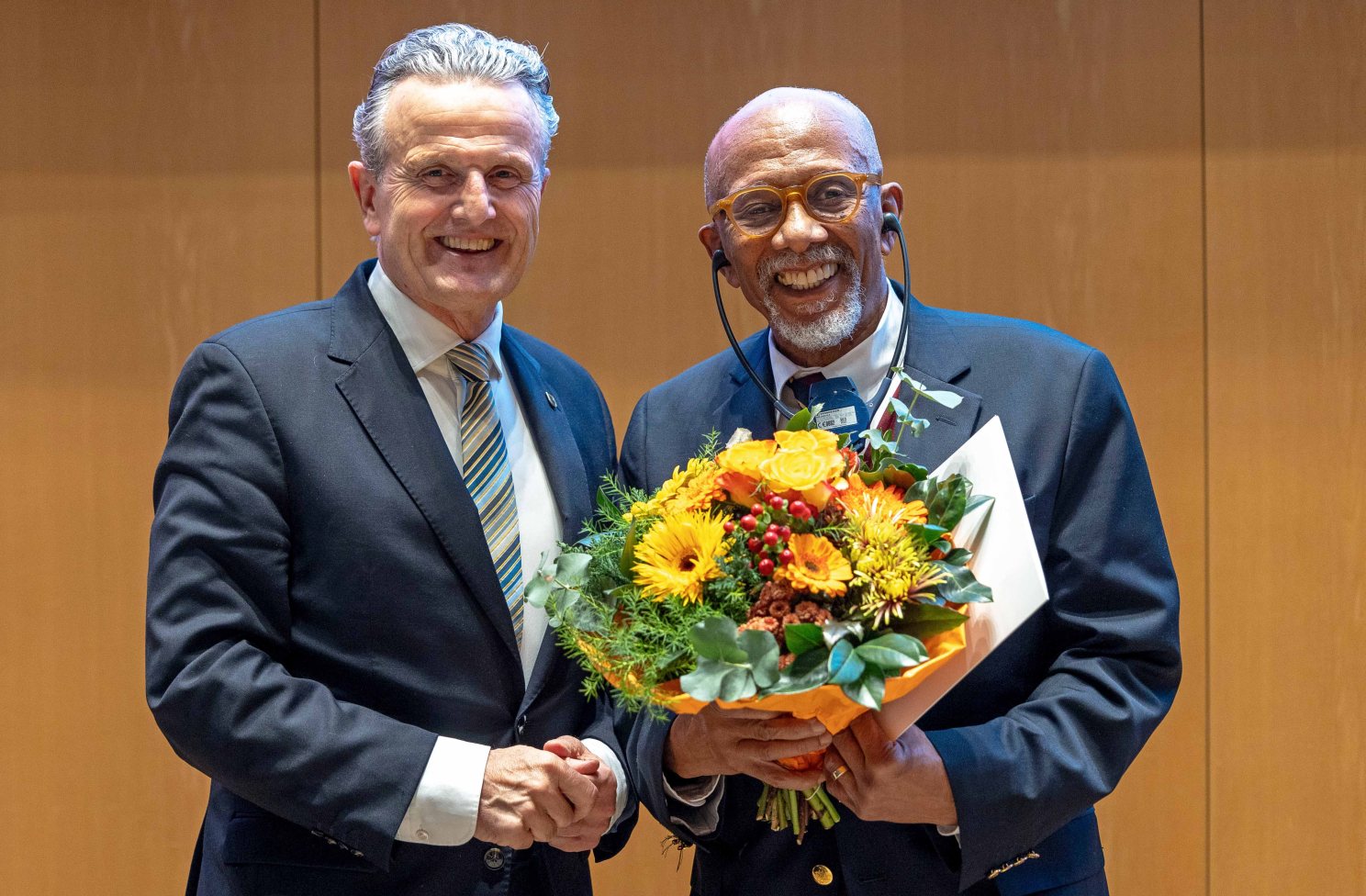Sociology professor Orlando Patterson honored in Germany with Hegel Prize

Stuttgart Mayor Frank Nopper (left) presented Patterson with the award.
Sham Sthankiya/Courtesy of the city of Stuttgart
Orlando Patterson, the John Cowles Professor of Sociology, was honored last week with the 2024 Hegel Prize at a ceremony in Stuttgart, Germany. Named for 19th-century philosopher Georg Wilhelm Friedrich Hegel, who was born and raised in Stuttgart, the award recognizes outstanding contributions to the humanities.
“I was both delighted and surprised at the extent of the festivities, culminating with the Lord Mayor of Stuttgart grandly bestowing the prize,” said Patterson, who received his prize Thursday evening at Stuttgart City Hall. “The city of Stuttgart clearly reveres its native son.”
Patterson, a scholar of slavery, freedom, and ethno-racial relations, has served on the Harvard faculty for more than five decades. The Jamaica-born historical and cultural sociologist, who focuses on contexts in the U.S. and Caribbean, has authored countless papers and academic books, including the well-known “Slavery and Social Death” (1982). He won the National Book Award for “Freedom in the Making of Western Culture” (1991). His forthcoming “Enslavement: Past and Present” is available Jan. 28.
Patterson’s contributions to the classroom include a spring 2025 General Education offering on human trafficking, slavery, and abolition in the modern world. While in Stuttgart, Patterson gave a talk before an audience of 300 people titled “Slavery and Genocide: The U.S. South, Jamaica, and the Historical Sociology of Evil.”
In the epigraph of his latest book, “The Paradox of Freedom: A Biographical Dialog” (2023), Patterson uses a favorite quote by Hegel:
“It was not so much from slavery as through slavery that humanity was emancipated.”
An independent jury comprised of academics and Stuttgart area leaders were charged with selecting this year’s Hegel Prize winner. In a statement, the jurists note many similarities between Hegel and their 2024 honoree. They characterize Patterson’s descriptions of the “social death” people experience under slavery as a deepening of Hegel’s ideas about non-recognition for certain humans. They also point to a shared interest in freedom and liken Patterson’s understanding of the central role of “culture” in reproducing the institution of slavery to Hegel’s concept of “Sittlichkeit” (or ethical life).
“The great thing about Hegel is that you do not have to agree with him one iota to learn from and be stimulated by him,” Patterson told the Gazette. “His celebrated dialectical method almost invites his more attentive readers to struggle with him and to negate his extraordinary propositions in the construction of your own ideas. My own theory of slavery as social death, as well as my views on the birth of freedom in the ancient slave system of Athens, emerged out of just such a life-and-death intellectual struggle with him.”
The Hegel Prize is given triennially by the city of Stuttgart and the Hegel House Museum, with German philosopher Bruno Snell winning the inaugural prize on the occasion of Hegel’s 200th birthday in 1970.




